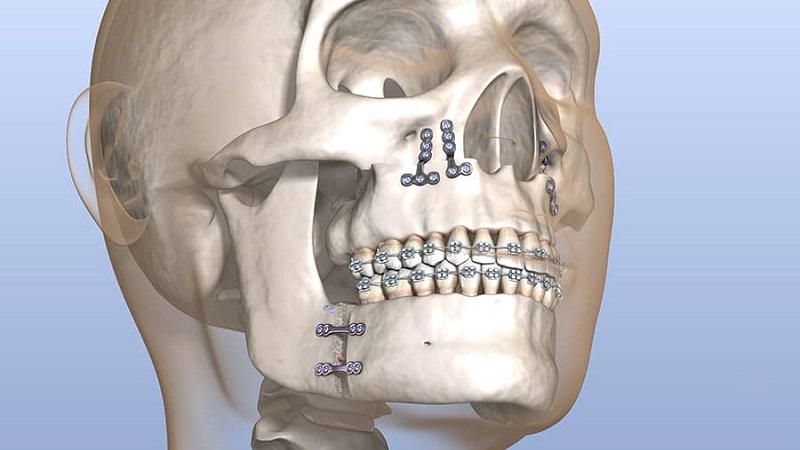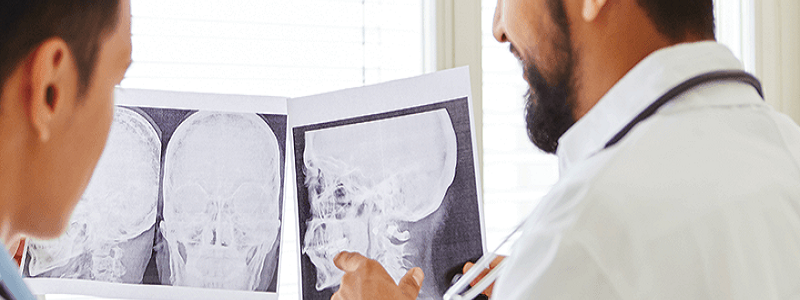Jaw surgery and speech improvement
Jaw surgery (Orthognathic) It is one of the complex surgical procedures that is performed to correct jaw abnormalities and improve its various functions.. One of the most important questions that patients and applicants for this surgery have is whether jaw surgery can help improve their speech or not.. In this article, we examine the impact of jaw surgery on speech improvement and analyze the scientific and experimental reasons for this relationship.
Speech problems caused by jaw abnormalities
1. Orthodontics and upper and lower jaw problems
Many speech problems arise from abnormalities of the upper and lower jaw. These abnormalities can include forward or backward jaws, crooked jaws, and misalignment of the jaws.. These problems can lead to impaired pronunciation of sounds and words.
2. Temporomandibular joint problems (TMJ)
Problems related to Temporomandibular joint They can cause pain, limitation of jaw movement, and as a result speech disorder. Pain and difficulty in moving the jaw can lead to difficulty in pronouncing sounds and words correctly.
3. dental problems
Misalignment of teeth and orthodontic problems can lead to difficulty in chewing and pronouncing sounds correctly.. Uneven or spaced teeth can cause incoherence in speech.
The effect of jaw surgery on speech improvement
1. Correction of jaw abnormalities
One of the main goals of jaw surgery is to correct jaw abnormalities. By correcting the position of the jaws and coordinating them with each other, speech problems caused by jaw abnormalities are also improved.. Jaw surgery can create a correct match between the upper and lower jaws, resulting in improved pronunciation of sounds and words..
2. Improving the function of the temporomandibular joint
Jaw surgery can help improve temporomandibular joint function and reduce pain and movement limitations associated with it.. These improvements can facilitate jaw movement and thus improve speech.
3. Improve dental appearance
Jaw surgery is usually performed together with orthodontics. This combination can help improve dental appearance and proper alignment of teeth, which in turn can lead to improved speech.. Regular and straight teeth can facilitate the correct pronunciation of sounds and words.

Official page Ш§ЫҢЩҶШіШӘШ§ЪҜШұШ§Щ… Dr Behnam khorami (Best of nose surgery) follow the.
Studies and scientific evidence
1. Clinical studies
Numerous clinical studies have shown that jaw surgery can help improve speech problems caused by jaw abnormalities.. These studies show that patients have a significant improvement in the pronunciation of sounds and words after jaw surgery.
2. Patient experiences
Patients' experiences also show the positive impact of jaw surgery on speech improvement. Many patients who have undergone jaw surgery report that their speech has improved and their previous pronunciation problems have been resolved..
Limitations and challenges
1. Need for additional treatments
Although jaw surgery can help improve speech, in many cases, patients need additional treatments such as speech therapy sessions.. Speech therapy can help patients learn how to properly use their jaws and teeth to pronounce sounds..
2. recovery time
Complete recovery after jaw surgery takes time, and patients may experience speech problems during the recovery period. These problems are usually temporary and will improve with time and proper exercises.
3. Different results
Jaw surgery results may vary from person to person. Various factors such as the severity of the abnormality, the age of the patient, and the strict adherence to post-surgery instructions can affect the results.
Solutions and recommendations
1. Detailed advice before surgery
Before deciding to undergo jaw surgery, patients should consult with different specialists including maxillofacial surgeon, orthodontist and speech therapist.. These consultations can help patients make the best decision to improve their speech problems.
2. Follow the instructions after surgery
Strictly following post-surgery instructions can help speed recovery and reduce speech problems. These instructions may include taking pain medication, performing jaw exercises, and seeing your doctor regularly.
3. Doing speech therapy exercises
Patients after jaw surgery can benefit from speech therapy sessions. Speech therapy can help improve speech and correct pronunciation of sounds and enhance the results of surgery.
Conclusion
Jaw surgery It can have positive effects on improving speech, especially in cases where speech problems are caused by jaw abnormalities, temporomandibular joint problems, or dental problems.. However, patients should keep in mind that jaw surgery is only one step in improving speech and may require additional treatments such as speech therapy.. With careful counseling and following post-surgery instructions, patients can benefit from positive jaw surgery results and help improve their quality of life..
Useful links: Isfahan nose surgeon _ Jaw surgeon of Isfahan
Dr. Behnam Khorrami's page in the clinic 24 | Maxillofacial surgeon in Isfahan clinic 24 | Nose surgeon in Isfahan clinic 24
Dr. Behnam Khorrami, nose surgeon in Isfahan at Dr. Af | Maxillofacial surgeon in Isfahan at Dr. Af | Isfahan nose surgeon at Dr. Af
Suggested contents of Dr. Behnam Khorrami's website (Best of nose surgery вҖ“ Jaw surgeon of Isfahan):
Different types of upper jaw cosmetic surgery
An overview of the types of anesthesia for nose surgery
